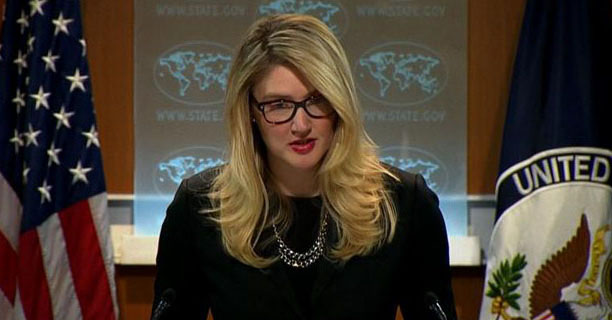In two recent moves, a United States State Department has signalled growing impatience with China’s current policy on Tibet and their concern over the human rights situation there. The two statements were made at a press briefing, and in a new bill tabled in the House of Representatives.
On June 6, US State Department spokesperson, Marie Harf, stated that the US continues to urge China to engage unconditionally in “substantive dialogue” with the Dalai Lama or his representatives, address policies which are driving tensions in Tibetan areas and respond to requests for a US consulate in Lhasa. Following the stalemate in talks between Beijing and Dharamsala since 2010, China has continued to accuse the Dalai Lama and the Tibetan camp of seeking disguised independence. A recent statement from a Chinese foreign ministry spokesperson shows little change in this position, and confirmed that China would only speak to the Dalai Lama’s representatives “and only about his personal future, not anything to do with Tibet.”
On June 12, US congressman Jim McGovern introduced a bill to the US House of Representatives, the Reciprocal Access to Tibet Act, which would promote greater access to Tibetan areas for US officials, journalists and citizens. Under the legislation Chinese officials who have designed or implemented restrictions would be denied access to the US. Current restrictions on travel to Tibet are “more severe than for any other provincial-level entity of China”, according to McGovern, with more than ten US requests for diplomatic access denied, and prolonged delays following an October 2013 bus accident in Tibet involving US citizens which hindered the US efforts to support their countrymen who were in distress.
Both Ms Harf and Congressman McGovern have voiced concerns over the effect of hardline Chinese policy on human rights for Tibetans. McGovern stated that restrictions force Tibetans to live in “virtual isolation from the world community”, making it difficult to objectively assess the human rights situation there.
These developments follow a pledge of support from the Obama administration for the “Middle Way” approach and come on the eve of a new global awareness campaign, “Umaylam: The Middle Way Approach”, in which the Tibetan Government-in-exile has renewed its efforts to clarify its strategy to achieve “genuine autonomy” for Tibetans within China.






 Print
Print Email
Email